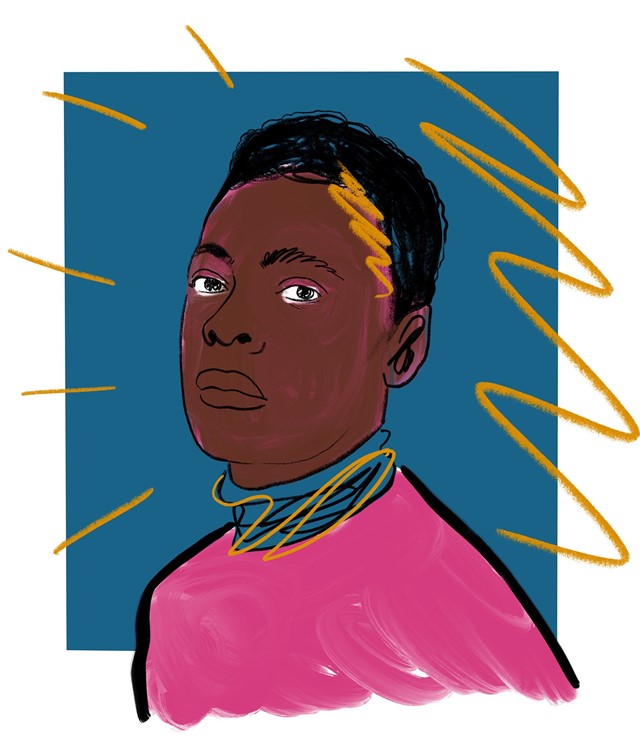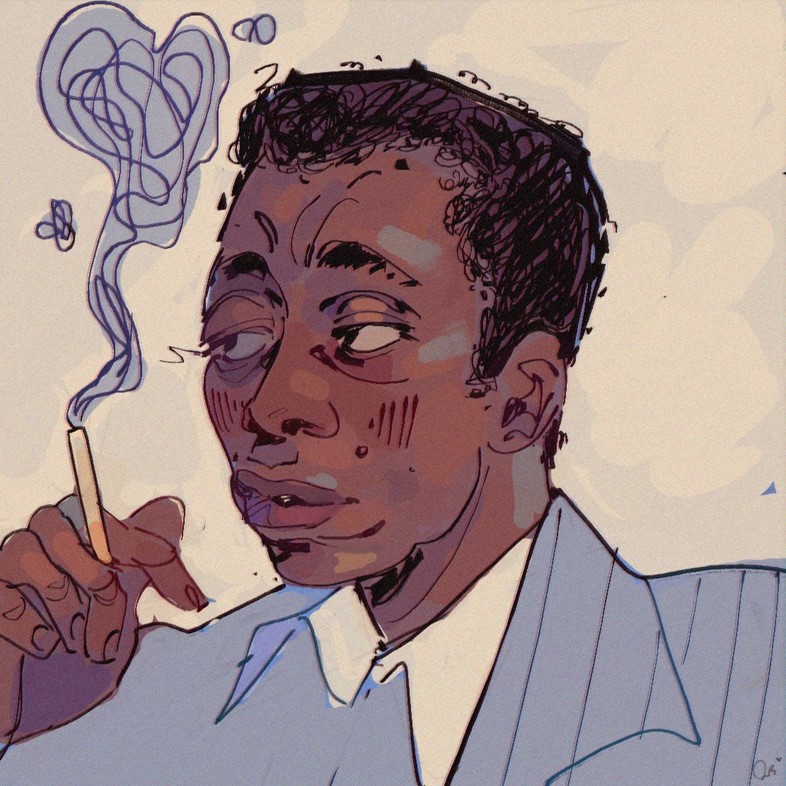In an excerpt from The Queer Bible, the celebrated novelist behind Rainbow Milk extols a fellow writer: James Baldwin
The thing that strikes me most about Baldwin – now that I have access to every clip of his speeches and interviews, now that I’ve read all but one of his novels, now that I’ve been floored by my own reflection in his essays – is his courage, and his confidence in his own mind. He did not go to college. He knew he was brilliant and worth saving by something other than God; he left New York lest it killed him, and fled to Paris, then to Istanbul, then to the south of France, periodically returning to the US – even while being hounded by the FBI’s COINTELPRO ( Counterintelligence Program) project (run by J Edgar Hoover, a closeted homosexual) – to tell it about itself in no uncertain terms, influencing the Black Power movement, marching side by side with Civil Rights campaigns, writing essays like ‘Letter from a Region in My Mind’ that woke white America to the questions it needed to be asking itself about its role in the country’s race problem, landing him the cover of TIME magazine, a first for a Black writer. He smoked like a chimney, drank like a fish; went to school with Richard Avedon; was taught English Literature by the man who wrote Strange Fruit and who adopted the Rosenberg children after their parents’ execution; was besties with playwright Lorraine Hansberry, Harlem Renaissance painter Beauford Delaney and Nina Simone; slept with Marlon Brando (if the Quincy Jones rumours are to be believed). But he was serious, and it is for this that I am in awe of him: what enabled a Black man from his background, barely older than I am now and pretty much openly gay, to rock up at the Cambridge University Union in February 1965 – two whole years before the partial decriminalisation of homosexuality in the UK and just seven days before the assassination of Malcolm X in Harlem – and in front of seven hundred elite students, and America’s most-respected conservative intellectual, deliver a knockout argument about how the American Dream has been at the expense of the American Negro, to the ring of a minutes-long, each-to-a-man standing ovation and landslide debate victory? My first Baldwin read was his 1968 novel Tell Me How Long the Train’s Been Gone. I don’t think it’s a coincidence that, within a year, I myself found the courage to come out initially as bisexual, as Leo Proudhammer – its protagonist – and Baldwin himself preferred to self-identify.

For reasons I can only speculate on in hindsight, I left Baldwin – and Black writing – alone after this initial moment of revelation. I was not ready for it. I misremembered the most striking scene in Train: Caleb and Leo, as young men, have sex with each other, and I recalled this as a simple moment of Black same-gender love, a radical thing in itself in proper literature, but I must have chosen not to believe, until I reread the novel 18 years later, that they were brothers, that the younger brother was loving the older brother in a way no one else could, and that, at least between them, it was a pure, beautiful and shared moment of affirmation. It was just too much; these things were supposed to be outside the realm of Black experience. Like Leo, I would become an actor, via being a waiter, via getting a leg-up in society from sympathetic white creatives. Like Leo, his lover Black Christopher, and Rufus, the troubled, queer, jazz drummer in Baldwin’s 1962 novel Another Country – the latter two both said to be avatars of the young James – I was forced to confront what my place is in this world as a Black man, but in my case, in the glare of Black Lives Matter, and after watching a string of Black male bodies lie unjustly dead.
I am lucky, so, so lucky, to have been able to consult James Baldwin, to know that others have been angry, before me; others have thought about white supremacy and how it affects all our lives, before me; thought about what it means to be gay in the Black community and in the Church, before me. He is the writer who has perhaps had the greatest impact on my life, and as I have not yet read every word he has written, it thrills me to think that there is more inspiration, more affirmation, still to come.
Edited extract taken from ‘A Love Letter to James Baldwin’ by Paul Mendez, featured in The Queer Bible (HQ, £20). Pre-order a copy of the book here.
